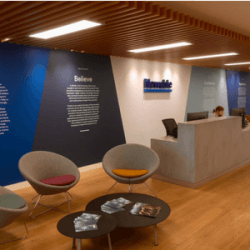October 31, 2018
Business leaders agree that organisations must be digitised to compete
 Over two thirds (67 percent) of business leaders agree their company must become significantly digitalised by 2020 to remain competitive, and they are looking for HR leaders to lead the transformation. This is according to Gartner, Inc whose latest research suggests that CEOs are sharing their focus on digitalisation with their investors; with mentions of “digital” on earnings calls increasing by 20 percent year-over-year since 2010. CEOs are seeking ways to keep costs down while achieving gains in efficiency and productivity, and the HR function is expected to lead digital transformation efforts across their organisations. More →
Over two thirds (67 percent) of business leaders agree their company must become significantly digitalised by 2020 to remain competitive, and they are looking for HR leaders to lead the transformation. This is according to Gartner, Inc whose latest research suggests that CEOs are sharing their focus on digitalisation with their investors; with mentions of “digital” on earnings calls increasing by 20 percent year-over-year since 2010. CEOs are seeking ways to keep costs down while achieving gains in efficiency and productivity, and the HR function is expected to lead digital transformation efforts across their organisations. More →
















 The new northern home of the BBC is giving London a run for its money when it comes to siting offices for the UK’s top tech talent, with Manchester leading the way, according to
The new northern home of the BBC is giving London a run for its money when it comes to siting offices for the UK’s top tech talent, with Manchester leading the way, according to 















October 16, 2018
Law firms are finally embracing the agile workplace
by Simon Pole • Comment, Workplace design
More →